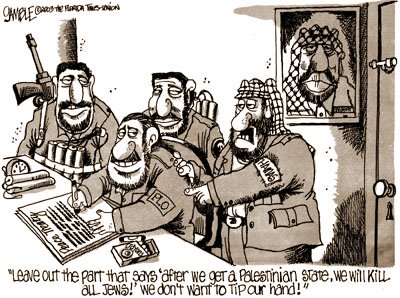Thanks to Sion for alerting us to this excellent article originally published in the San Francisco Chronicle, and then on 10th April on
http://www.aish.com/....
 I was born in Iraq and my family survived the Farhud, the Arabic pogrom of 1941.
The Middle East's Forgotten Refugees
I was born in Iraq and my family survived the Farhud, the Arabic pogrom of 1941.
The Middle East's Forgotten Refugees was written by Semha Alwaya is an attorney in the San Francisco Bay Area and a founding member of Jews Indigenous to the Middle East and North Africa (
JIMENA).
"In discussions about refugees in the Middle East, a major piece of the narrative is routinely omitted...I am a Jew, and I, too, am a refugee. Some of my childhood was spent in a refugee camp in Israel (yes, Israel). And I am far from being alone."
"This experience is shared by hundreds of thousands of other indigenous Jewish Middle Easterners ... However, unlike the Palestinian Arabs, our narrative is largely ignored by the world because our story -- that of some 900,000 Jewish refugees from Arab countries dispossessed by Arab governments -- is an inconvenience for those who seek to blame Israel for all the problems in the Middle East."
"Our lives in the Israel of the 1950s were difficult. We had no money, no property; there were food shortages, few employment prospects. Israel was a new and poor country ...It absorbed not only hundreds of thousands of us, but also an equal number of survivors of Hitler's genocide. We lived in dusty tents in "transit camps," their official name since these were to be temporary, not permanent."
"Housing was eventually built for us, we became Israeli citizens, and we ceased being refugees. The refugee camps in Israel that I knew as a child were phased out, and no trace of them remains. Israel did this without receiving a single cent from the international community, relying instead on the resourcefulness of its citizens, and donations from Diaspora Jewish communities. Today, many of Israel's top leaders are from families that were forced to flee Arab countries, and we make up more than half of Israel's Jewish population."
"...There once was a vibrant presence of nearly one million Jews residing in ten Arab countries. ...Today, however, fewer than 12,000 Jews remain in these lands ... What happened to us, the indigenous Jews of the Arab world? Why were 150,000 Iraqi Jews -- my family included -- forced out of Iraq? Why were another 800,000 Jews from nine other Arab countries also compelled to leave after 1948?"
Alwaya goes on to describe the period before and during WW2, including the Arab Palestinian support of the Nazis and brutal atrocities against their Jewish populations.
"...Since 1949, the United Nations has passed over 100 resolutions on Palestinian refugees. Yet, for Jewish refugees from Arab countries not a single UN resolution has been introduced recognizing our mistreatment or calling for justice for the hundreds of thousands of Jewish refugees forced out of our homes. This imbalance of the world's concern is itself an injustice.
Arab governments instituted policies that led to some 900,000 Middle Eastern Jews becoming stateless refugees. Those same governments forced some 750,000 Palestinian refugees and their descendants to remain in impoverished refugee camps refusing them citizenship and denying them hope."
"Peace between Israel and the Arab world requires a solution that recognizes that there were two refugee populations. Acknowledging and redressing the legitimate rights of Jewish refugees from Arab countries will promote the cause of justice, peace and a true reconciliation."








